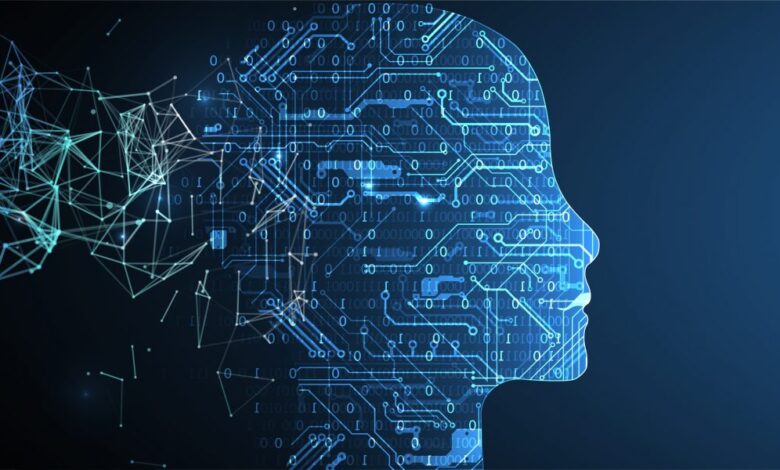
In the rapidly evolving landscape of technology, the emergence of Artificial Intelligence (AI) has disrupted numerous industries and transformed the way we live and work. As AI continues to permeate every aspect of our lives, it has become imperative to acquire new skills and knowledge to remain competitive in the job market. This blog post aims to highlight the top professional courses that can help individuals upskill and thrive in the AI era.
Why Upskilling is Crucial in the AI Era
The integration of AI into various sectors has created a paradigm shift in the workforce. Traditional job roles are being reshaped, and new opportunities are emerging. To remain relevant and future-proof one’s career, upskilling has become a necessity. By enhancing your skillset with AI-related courses, individuals can position themselves as valuable assets in the job market and unlock new possibilities for career growth and advancement.
Top Professional Courses to Learn
- Machine Learning
Machine Learning (ML) is the foundation of AI and involves the development of algorithms and statistical models that enable systems to learn from data and make predictions or decisions without being explicitly programmed. With the exponential growth of data and the increasing demand for intelligent systems, machine learning has become an indispensable skill across various industries, including finance, healthcare, marketing, and cybersecurity. If you’re based in London, there are numerous options for professional courses in London that can help you acquire this valuable skill set.
Courses in machine learning cover topics such as supervised and unsupervised learning algorithms, data preprocessing, model evaluation, and deployment. These courses equip you with the knowledge and practical skills to build and deploy machine learning models, enabling you to extract valuable insights from data and automate decision-making processes.
- Deep Learning
Deep Learning is a subset of machine learning that focuses on artificial neural networks inspired by the human brain’s structure and function. It has revolutionized fields like computer vision, natural language processing, and speech recognition, enabling breakthroughs in areas such as self-driving cars, virtual assistants, and automated translation.
Deep learning courses delve into neural network architectures, including convolutional neural networks (CNNs) and recurrent neural networks (RNNs), as well as techniques like transfer learning and reinforcement learning. By mastering deep learning, individuals can develop cutting-edge AI applications and contribute to groundbreaking innovations in various domains.
- Data Science
Data science is an interdisciplinary field that combines statistical and computational methods to extract insights and knowledge from data. As AI systems heavily rely on data for training and decision-making, data science skills have become increasingly valuable in the AI era.
Data science courses cover topics such as data exploration, data wrangling, statistical modeling, machine learning, and data visualization. These courses equip you with the skills to collect, process, analyze, and interpret large and complex datasets, enabling you to uncover patterns, trends, and insights that drive data-driven decision-making processes.
- Big Data Analytics
Big Data Analytics involves the processing and analysis of massive, complex datasets that traditional data processing tools and techniques cannot handle effectively. With the exponential growth of data generated by various sources, including IoT devices, social media, and digital transactions, the ability to manage and extract valuable information from big data has become crucial.
Courses in big data analytics cover topics such as distributed computing frameworks (e.g., Hadoop, Spark), NoSQL databases, data mining techniques, and real-time data processing. These courses prepare you to handle and analyze large-scale data, enabling you to uncover valuable insights and make data-driven decisions in various industries.
- Cybersecurity
As AI systems become more sophisticated and integrated into critical infrastructure, the need for robust cybersecurity measures has become paramount. Cybersecurity courses equip you with the knowledge and skills to protect AI systems and the data they process from cyber threats, such as malware, hacking attempts, and data breaches.
These courses cover topics like cryptography, network security, vulnerability assessment, incident response, and secure coding practices. By mastering cybersecurity principles and techniques, you can ensure the safe and secure deployment of AI systems, mitigating risks and protecting sensitive data.
- AI Ethics
The rapid advancement of AI has raised ethical concerns regarding its impact on society, privacy, and decision-making processes. AI ethics courses explore the ethical implications of AI technology and provide a framework for developing responsible and trustworthy AI systems.
These courses cover topics such as algorithmic bias, data privacy, transparency, accountability, and the societal impact of AI. By understanding AI ethics, you can contribute to the development of ethical AI systems that respect human rights, promote fairness, and mitigate potential risks and negative consequences.
- Natural Language Processing (NLP)
Natural Language Processing (NLP) is a branch of AI that deals with the interaction between computers and human language. NLP has applications in areas such as sentiment analysis, language translation, virtual assistants, and chatbots.
NLP courses cover topics like text preprocessing, language modeling, named entity recognition, sentiment analysis, and machine translation. By mastering NLP techniques, you can develop intelligent systems that can understand, interpret, and generate human language, enabling more natural and intuitive human-computer interactions.
- Robotics
Robotics is an interdisciplinary field that combines computer science, engineering, and AI to design, develop, and operate robots. As AI advances, robots are becoming more intelligent, capable, and autonomous, with applications in manufacturing, healthcare, exploration, and various other industries.
Robotics courses cover topics such as robot kinematics, dynamics, control systems, sensor integration, and AI techniques for robot navigation and decision-making. By studying robotics, you can develop skills in designing, programming, and deploying intelligent robots that can perform complex tasks and operate in challenging environments.
- Intelligent Systems
Intelligent systems are computer systems that exhibit intelligent behavior, leveraging AI techniques to perceive, learn, reason, and act in complex environments. These systems have applications in areas such as decision support systems, expert systems, and autonomous systems.
Courses in intelligent systems cover topics like knowledge representation, reasoning techniques, planning and scheduling algorithms, and multi-agent systems. By mastering intelligent systems, you can develop systems that can make rational decisions, solve complex problems, and adapt to changing environments, enabling applications in various domains, including healthcare, finance, and transportation.
- Cloud Computing
Cloud computing is the delivery of computing services, including servers, storage, databases, networking, software, and analytics, over the internet. In the AI era, cloud computing plays a crucial role in providing the necessary computing power and scalability for training and deploying AI models. Furthermore, the synergy between IoT and cloud computing enhances data collection, processing, and real-time insights, driving innovation across industries.
Cloud computing courses cover topics such as cloud architecture, cloud deployment models, cloud services, Platform as a Service (PaaS), Software as a Service (SaaS)), and cloud security. By mastering cloud computing, you can leverage the scalability and flexibility of the cloud to develop, deploy, and manage AI applications efficiently.
- Distributed Systems
Distributed systems are a collection of interconnected computing nodes that work together to achieve a common goal. In the context of AI, distributed systems are essential for processing large-scale data, training complex models, and deploying AI applications across multiple nodes or devices.
Courses in distributed systems cover topics such as distributed computing paradigms, distributed algorithms, fault tolerance, consistency models, and distributed storage and processing frameworks (e.g., Apache Kafka, Apache Spark). By understanding distributed systems, you can develop scalable and fault-tolerant AI applications that can handle large volumes of data and computational workloads.
Frequently Asked Questions
- Why is upskilling important in the AI era?
Upskilling is essential to stay relevant and adaptable as AI reshapes traditional job roles and creates new opportunities. By enhancing your skillset with AI-related courses, you can position yourself as a valuable asset and unlock new possibilities for career growth and advancement.
- What are the key areas to focus on for upskilling in AI?
Some of the key areas to focus on include Machine Learning, Deep Learning, Data Science, Big Data Analytics, Cybersecurity, AI Ethics, Natural Language Processing (NLP), Computer Vision, Robotics, Intelligent Systems, Cloud Computing, and Distributed Systems.
- How can these courses benefit my career?
These courses will equip you with the skills to develop and deploy AI applications, extract valuable insights from data, ensure the security and ethical use of AI systems, and leverage the power of cloud computing and distributed systems for scalable and fault-tolerant solutions.
- Are these courses suitable for beginners or experienced professionals?
Most professional courses cater to both beginners and experienced professionals, offering different levels of instruction based on prior knowledge and experience. They are designed to provide a comprehensive understanding of the subject matter and practical skills applicable to real-world scenarios.
- How can I choose the right course for my needs?
Consider your career goals, current skill level, and areas of interest when selecting a course. Additionally, research the course curriculum, instructor credentials, and delivery format (online, in-person, or hybrid) to ensure it aligns with your learning preferences and schedule.
Conclusion
In the AI era, upskilling has become a necessity to remain competitive and future-proof your career. The courses highlighted in this blog post encompass various domains, from machine learning and data science to cybersecurity, ethics, robotics, and cloud computing. By investing in these professional courses, you can equip yourself with the knowledge and skills required to thrive in the rapidly evolving AI landscape





